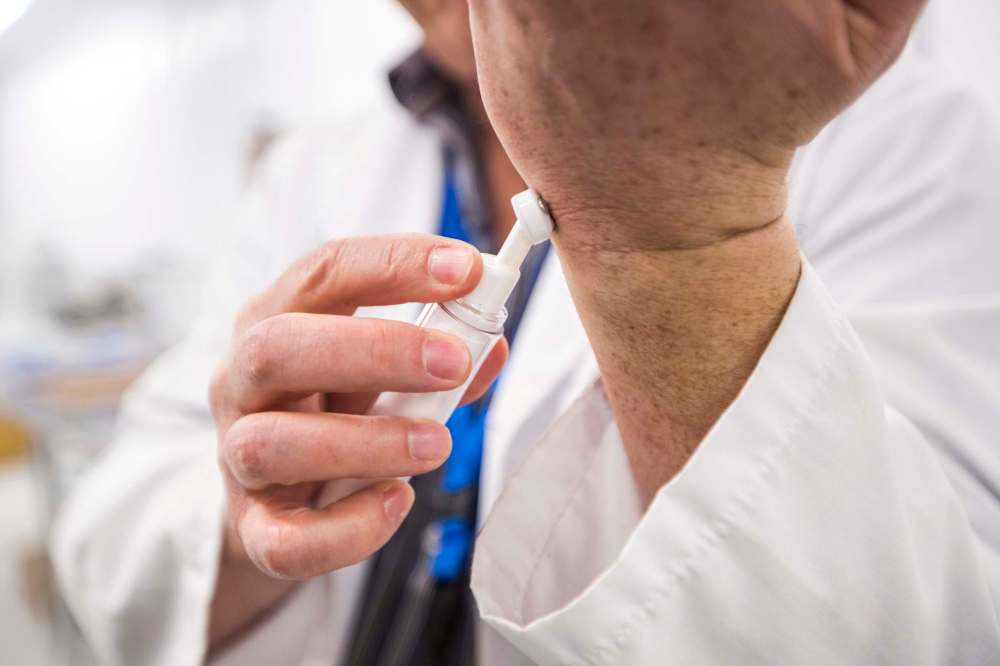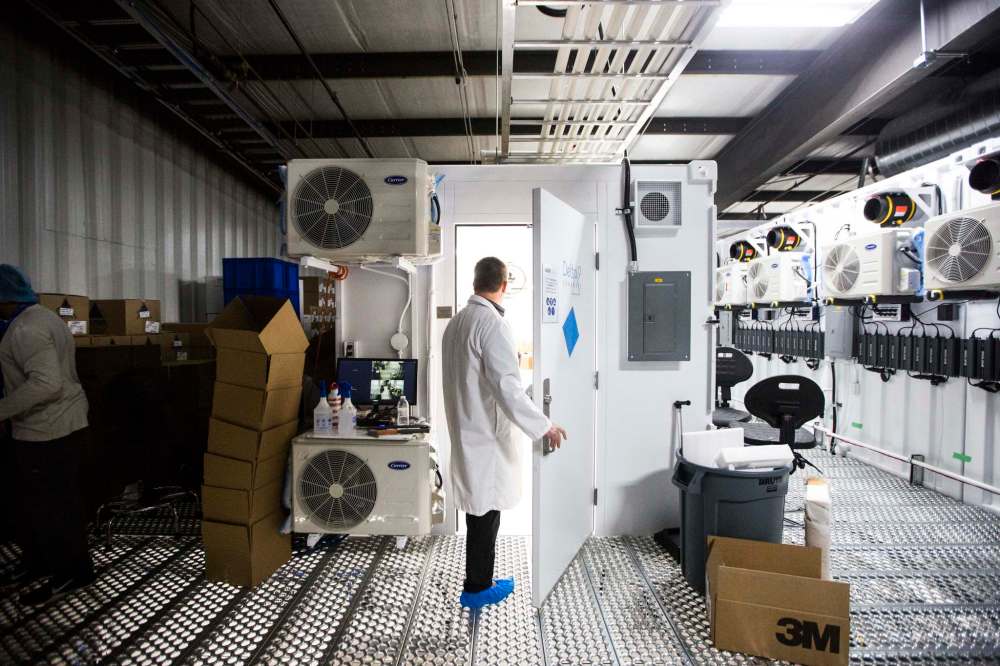New cannabis-oil technology promises faster onset Process 'smashes' cannabinoid molecules to get into bloodstream quicker
Read this article for free:
or
Already have an account? Log in here »
To continue reading, please subscribe:
Monthly Digital Subscription
$0 for the first 4 weeks*
- Enjoy unlimited reading on winnipegfreepress.com
- Read the E-Edition, our digital replica newspaper
- Access News Break, our award-winning app
- Play interactive puzzles
*No charge for 4 weeks then price increases to the regular rate of $19.00 plus GST every four weeks. Offer available to new and qualified returning subscribers only. Cancel any time.
Monthly Digital Subscription
$4.75/week*
- Enjoy unlimited reading on winnipegfreepress.com
- Read the E-Edition, our digital replica newspaper
- Access News Break, our award-winning app
- Play interactive puzzles
*Billed as $19 plus GST every four weeks. Cancel any time.
To continue reading, please subscribe:
Add Free Press access to your Brandon Sun subscription for only an additional
$1 for the first 4 weeks*
*Your next subscription payment will increase by $1.00 and you will be charged $16.99 plus GST for four weeks. After four weeks, your payment will increase to $23.99 plus GST every four weeks.
Read unlimited articles for free today:
or
Already have an account? Log in here »
Hey there, time traveller!
This article was published 02/04/2019 (2452 days ago), so information in it may no longer be current.
New cannabis oils that deliver a fast-acting, smokeless high could hit Canadian store shelves within a couple months if a partnership between Winnipeg-based Delta 9 Cannabis and biotechnology firm NanoSphere Cannabis International works as planned.
Concentrated, ingestible cannabis oils are already widely available in Canada, but the human body processes ingested cannabis differently than it does smoke or vapour, which enters the bloodstream quickly after inhalation.
Orally administered cannabis is processed through the liver, and it can take an hour or two for users to feel the effects. The liver also turns THC — the intoxicating chemical compound found in cannabis — into a form called 11-hydroxy-THC, which can be overwhelmingly potent for some users.

The new technology solves both of those problems, according to Gary Symons, president of NanoSphere Cannabis International. The company’s proprietary process “smashes” cannabinoid molecules down to a smaller size, then encapsulates those molecules into tiny “nanospheres.”
“And it goes right through the mucous membrane into the bloodstream, just like it would with smoking, but without smoking,” said Symons, a Delta 9 investor who was formerly the Winnipeg company’s director of communications.
“So rather than waiting, say, an hour for the effect to happen, you would wait maybe five to 10 minutes for it to happen. So it’s exponentially faster onset.”
NanoSphere Cannabis International’s U.S. parent company holds a patent on the cannabis delivery technology, and Delta 9 holds the master licence for the technology in Canada, Symons said. The partner companies will decide jointly whether to licence the technology to other Canadian cannabis firms.
Delta 9 chief executive officer John Arbuthnot said his company is close to receiving its cannabis oil sales licence from marijuana industry regulator Health Canada, and he hopes to be able to sell products incorporating the nanotechnology within the next three months.
“I think this is very powerful for the (recreational) market, and I think that products like this is where the (recreational) market is going because eventually people want a healthier alternative, they don’t want to smoke.”
— Gary Symons
But quick-onset cannabis oils are just the beginning, said Symons and Arbuthnot. New government cannabis regulations expected later this year could pave the way for other delivery methods that use the nanotechnology, such as nasal sprays or topical applicators to be used directly on the skin.
Symons showed off such an applicator at the NanoSphere processing laboratory within Delta 9’s east Winnipeg facility Tuesday.
“It’s very concentrated, it only takes a tiny drop,” he said, activating a device that resembled a small electric toothbrush, which exuded a dab of clear gel. (Symons’ demo unit contained no THC.)
The transdermal cannabis delivery device is already available for sale in Colorado, Symons said.
“I’ve literally seen patients go from 10 (on the pain scale) to three” after using the device, he said.

However, Symons believes NanoSphere’s technology has appeal beyond the medical marijuana field.
“I think this is very powerful for the (recreational) market, and I think that products like this is where the (recreational) market is going because eventually people want a healthier alternative, they don’t want to smoke,” he said.
The nanotechnology could eventually make cannabis edibles more palatable for consumers, Arbuthnot said.
“If I want to develop a drinkable product, well that’s great, but if the onset is an hour, you’re never going to find that uptake from the consumer when it’s an hour lag time between consumption and actually feeling an effect,” he said.
“If we can shrink that down to five or 10 minutes, and now put that into a drinkable, or a brownie or cookie or gummy bear, whatever the delivery platform, I think you’ve got a lot more desirable effect.”
solomon.israel@theleafnews.com
Twitter: @sol_israel

History
Updated on Wednesday, April 3, 2019 10:01 AM CDT: Clarifies details about nano-encapsulation process








